6 weeks ago, I was sitting in my backyard in Brooklyn drinking iced coffee with one of my best friends, on what felt like the first “official” iced coffee day of the year. The sun was shining, I had just given her a birthday card and gift, and it was, overall, a really lovely moment. I wasn’t feeling lovely, though.
“I’ve been feeling really depressed lately…like, really, really low,” I said.
“I think Instagram is part of the problem. Every time I open it, I end up feeling noticeably worse. I might need to take a break from it. Maybe just for a day. Or maybe I’ll try it just for the weekend.”
As a daily Instagram user, even saying I might take a break for the weekend made me feel anxious, but the more I spoke out loud about it, the clearer it became.
I realized I was constantly reaching for Instagram based on a desire to connect, but it often left me feeling more hollow.
“The notifications, the constant stimulation, seeing what everyone is doing all the time, feeling good or bad depending on what post shows up in my feed or who is watching my story or liking my post….I don’t think this is healthy. I feel scattered and I can’t focus on my writing. I don’t think our brains are meant to consume so much information at once.”
When I pictured myself actually taking a break from Instagram, I felt like I was getting away with something. Would I really go to my friend’s birthday party that night and not post a photo on my Instagram story wishing her a happy birthday? (Gasp!)
I started to project my thoughts a little further into the future, realizing the dominance Instagram had over my life.
“What if I actually went on a trip somewhere, and didn’t post anything on my story about where I was? Wouldn’t that be CRAZY?” I giggled at how ridiculous that sounded, as if I don’t have a right to my own privacy. We’ve become so accustomed to the “share everything constantly” mentality of social media culture, and I genuinely couldn’t imagine how it would feel to take a trip and not post something on my story. But the choice is mine, after all…isn’t it? Nobody was pinning me down and forcing me to put my life on Instagram. But publicly documenting every possible shareable moment had become so habitual — from a flower on my walk, to the salad I ate for lunch, to the plane ticket in my hand, to the book I was reading at bedtime — I actually couldn’t fathom going a few days, let alone a week, without opening Instagram. Not to mention missing what everyone else was sharing – how would I know what’s going on in everyone’s lives? Do I actually need to know? And more importantly, do I need to know through staring at a screen?
Quitting Instagram felt like a rebellion. I felt exhilaration and relief at the very thought of it.
I decided to just try it for the day. I moved my instagram app to the last screen of my phone so I wouldn’t have easy access to it, and I went to my friend’s birthday party that night. I took no photos, I posted no stories, I didn’t even take my phone out of my bag the entire evening, except to check the time. It was weird, but really, REALLY refreshing. I had great conversations and met new friends. I realized how sad it was that not posting about it on Instagram felt like such a big deal to me.
The next day, I was proud of myself for getting through a day without opening Instagram, although I did feel some urges to open it, that I noticed felt like a reflex rather than a true desire. I decided to try and take a full week off. If I did that, though, I should probably post something publicly on my page telling people that I’m taking a break…right? I mean, I can’t just quit cold turkey and not INFORM people that they would no longer have access to my whereabouts and daily thoughts for a full week…right!? I’m laughing at these thoughts now, but at the time, it felt confusing. Instagram felt so intertwined with my life and my work that I felt guilty taking a break from it.
I also had a lot of reservations, career-wise, about not being on Instagram. I just sold a book, and social media was a big part of the marketing plan in my book proposal. You can’t just quit social media, Jenny. It would be irresponsible.
But I quickly realized something — I have to actually WRITE a book first. Writing a book takes a huge amount of focus, time and energy. And social media wasn’t contributing to me doing the writing – quite the opposite, actually. Because of my social media habits, it was hard for me to concentrate on writing except for in tiny spurts, a few minutes here and there. I found my attention span to be less than what it used to be, and this felt frustrating. Even reading long articles or books felt hard sometimes – my brain had been trained to start to look for new stimulation after just a few minutes, and I’d find myself grabbing my phone to quickly refresh Instagram for no reason at all, or to quickly write back to a comment or message. Then I’d go back to whatever I was doing. Social media was changing my ability to stay present and actually focus my attention on things that are really important to me.
If I was going to get into a solid book-writing routine — and take care of my mental and emotional health enough to actually do good work — I knew I needed to change my relationship to Instagram. So I took out my phone – and I deleted the app. (I didn’t delete my actual account, just the app – which meant all of my content would still be there when I decided to return).
The original name for this post was “What Happened When I Deleted Instagram For A Week.” I figured a week would be a huge victory for me. Now it’s been 6 weeks, and I feel completely different about the app (that’s all it is, after all… an app). I only re-downloaded it for the first time the other day, and that’s because I had to. More on that in a sec.
The first few days without Instagram
The first full day without Instagram, I put my phone into airplane mode and went to the farmer’s market. I didn’t take my phone out at all while I was there (normally I’d probably be posting about it on my story). Instead, I admired the produce and thought about recipes I could make. I talked to the farmers at each stand. I had a particularly wonderful conversation with the mushroom farmer, and I delighted myself by being able to identify every single mushroom in his tent. We had a great discussion about the different wellness properties of the mushrooms and how to cook with them. I bought some fresh lion’s mane mushroom, and he told me his favorite way to cook it (in a pan with butter and garlic). If I had been busy posting a story to Instagram, I would have likely missed out on the great conversation and connection. Even though this may seem like a small, everyday experience, I felt spontaneous joy and presence welling up inside of me. Knowing I could savor such a moment in my life so fully and not even pause to CONSIDER whether or not I should be documenting it made me feel so good…and so sad at the same time. I was honestly a little shocked to face the reality of how often I thought about which moments in my life were Instagram-worthy, rather than fully enjoying the pleasures of each moment.
That day, I wrote in my journal – “I think Instagram is sucking out my soul.”
Over the next few days, I kept instinctually pulling out my phone and tapping where Instagram used to be. I realized that the majority of my Instagram use was habitual, and quite addictive – scrolling and refreshing in every moment of aloneness or in-between times. Without it, I had nothing to refresh, and I felt a little lost. Was I this programmed? I’ve never considered myself an “internet addict,” but this felt very much like a detox.
The Reddit forum that changed everything
I was having so many conflicting feelings about social media, and having so many realizations, I felt an urge to see if other people were experiencing the same. I opened up Reddit, and I searched “I deleted instagram” to see if anyone else was playing with the same experiment. The subreddit I found ended up being the catalyst to so much learning and change.
I stumbled upon a subreddit called r/nosurf. If you’re not familiar with Reddit, a subreddit is a forum that’s dedicated to a certain topic of discussion. “No Surf” refers to a group of people (currently 45,000 members) who are actively trying to break their internet and social media addiction, or making a point not to use the internet meaninglessly and mindlessly. Everyone in that forum is actively working on improving their “analog lives” (i.e. life without digital technology). Here’s the explanation of the goals of No Surf – it’s not to quit the internet, but to not spend our lives on the internet.
The people in this forum woke me up to how many of us are majorly suffering because of social media use. There are stories of depression, anxiety, addiction, deep sadness, time being wasted, lives being spent staring at screens.
But it’s also full of hope — I found tons of resources and stories of becoming alive again through non-digital activities, which led me on quite a journey of digital awakening over the past 6 weeks.
Every time I had the urge to open Instagram, I’d open No Surf instead. I want to thank and acknowledge everyone in that subreddit – you’ve helped me to completely change the way I look at social media.
First, I read this Mark Manson article – Smartphones Are The New Cigarettes.
Then, I watched this TED Talk by Cal Newport – Why You Should Quit Social Media.
I was particularly touched by this article written by a 17-year-old who has never known life without social media. He wrote this about what it felt like to quit social media:
“Life now feels a blank canvas, and I am Pablo Picasso about to paint a masterpiece.”
That sentiment made me want to cry, and I found myself tearing up reading a lot of the messages in the forum. I can’t imagine what it would have been like if I grew up on social media — Facebook didn’t come around until my junior/senior year of college — but I can assume I would have had a really tough time if I had social media in middle school.
Over the first week or so without Instagram, I sometimes woke up feeling disconnected and a bit frantic in my brain. I could feel myself wanting to open up social media and “connect” again. Whenever I felt like opening Instagram, I sat for 20 minutes and meditated instead. Or I went for a run outside. It felt good, and took away the feeling of needing a digital dopamine hit.
It felt really weird at first to do things I thought were “Instagrammable” but not post anything. I taught at a workshop at Kripalu that was a dream come true for me, and posted nothing. I wrote a blog post about it instead, which felt 100x more fulfilling. One of my closest friends got married in Miami, and I kept my phone in my bag the whole time, except to take a few photos to send to the bride. It made me uncomfortable to feel how uncomfortable I was not posting anything.
In my newfound questioning of social media, I decided to re-watch the Black Mirror episode, Nosedive, on Netflix. If you haven’t seen it, I recommend it – it’s a pretty brilliant cautionary tale about the future of social media.
Here’s a clip:
https://youtu.be/epI5r0_T_lE
If you’ve seen the end, you know where she ends up by focusing too much on her digital “popularity…”
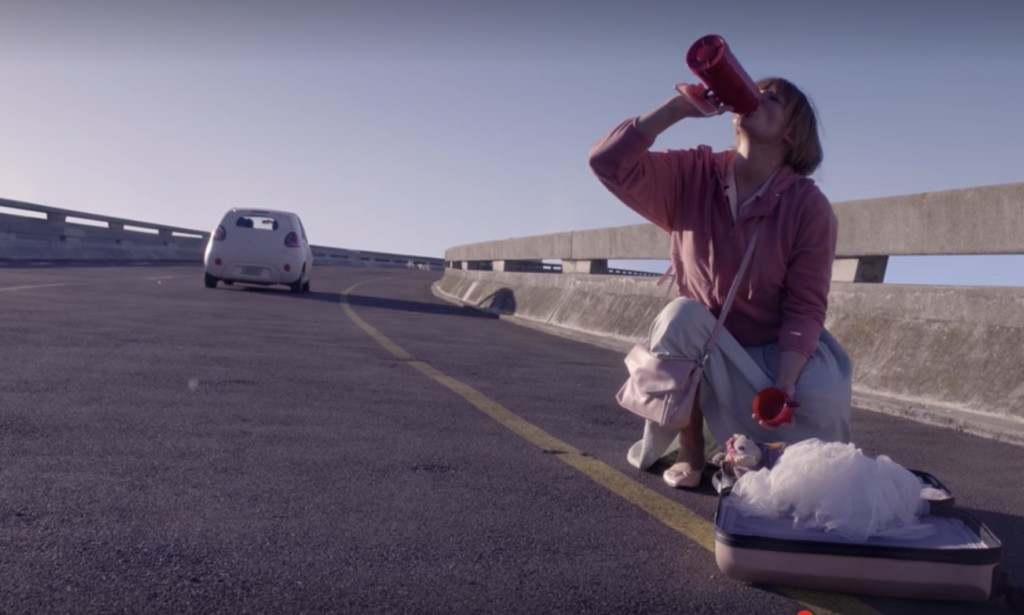
Reconnecting To “Deep Work”
Through the No Surf forum, I found the book “Deep Work: Rules for Focused Success in a Distracted World” by Cal Newport.
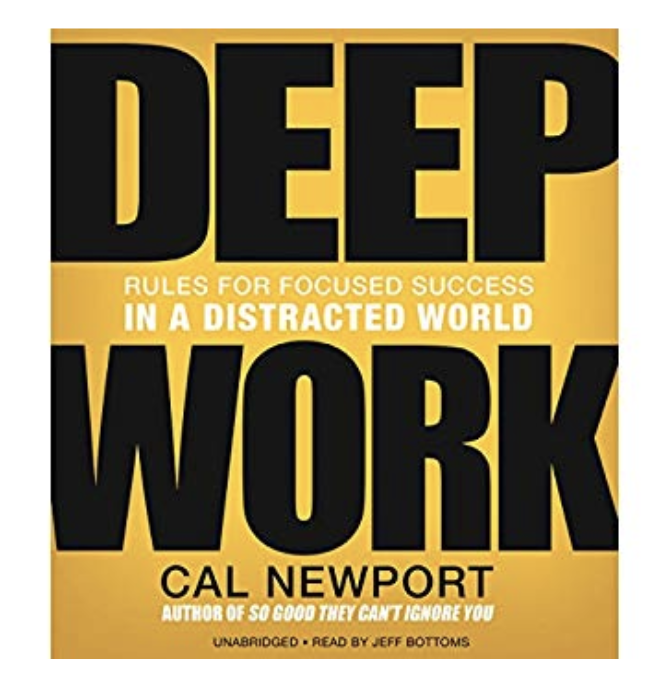
“Deliberate practice cannot exist alongside distraction.”
-Cal Newport, Deep Work
In Deep Work, Cal talks about the importance of quality, craftsmanship, and mastery – and how far we’ve gotten from those things in the social media world. As he points out, “any 16-year old with a smartphone can post on social media,” but that it takes a lot more effort and focus to create a true “body of work.” As I was reading the book, I felt a deep knowingness about something I had forgotten. When I first started building this blog, Instagram didn’t exist. Every time I wanted to express something I had learned, I would write about it here on the blog or send it to my email list (both of which I own…we don’t own our social media accounts). The way I grew a readership over the past 12 years was by writing about things and sharing them on my own blog and my email list – not by curating my Instagram feed.
In the age of everything-Instagram, I’d been putting more focus there in the last few years than on my actual writing. And focusing on Instagram can get pretty exhausting – not to mention extremely distracting from doing deep creative work.
I came to realize that the people I admire most (career-wise) aren’t focused on curating their Instagram feeds – they are focused on writing great books or otherwise doing deep work outside of Instagram, and they simply have an Instagram account as another way to share their work, post photos/snippets from their lives, answer questions, communicate with people, etc. The point is, Instagram isn’t the MAIN thing, it’s simply a thing. (But hey – if Instagram is your main thing and that truly makes you happy, that’s great). I think the “Instagram Influencer” culture has put a lot of pressure on people to feel “good enough,” and the effects of this on our mental health are just beginning to surface.
I thought about the kind of instagram followers I feel the best about having. When I get a message from someone saying, “I found one of your blog posts and it helped me so much – that’s why I’m following you” – that is my favorite kind of message to get. If I’m going to “grow my following,” on Instagram, I’d rather do it indirectly – i.e. someone found me because of a piece of work I’ve created outside of Instagram that was helpful to them, and then wanted to follow me and hear more from me because it felt like a meaningful connection had already been made. I care about this blog, and I care about my book – a lot. I know I can figure out a way to use Instagram that can help me put MORE value into my deep work instead of less, and I’m committed to finding it.
Digital Minimalism
When I was first reading through some of the experiences on Reddit of people who had deleted Instagram and Facebook, many people said they found themselves trading one digital app for another – they were suddenly spending more time scrolling Reddit or watching YouTube videos. It wasn’t JUST social media that was addictive, it seemed — it was smartphone use and apps in general.
I didn’t think that would be the case for me, as I wasn’t really into watching YouTube videos…that is, until I found myself one night staying up until 1am watching every Billie Eilish interview on the internet. YouTube does a great job of queuing up the next video you’d probably love to watch. “Oh, I might as well just watch one more. It’s only 3 minutes long.” And so it goes and goes and goes, and just when we thought we had kicked our habit, we’re pulled into another digital dopamine loop.
That’s when I understood. I knew that deleting Instagram was only one layer of the onion to peel away.
I took it a step further, and decided to read Digital Minimalism (also by Cal Newport).
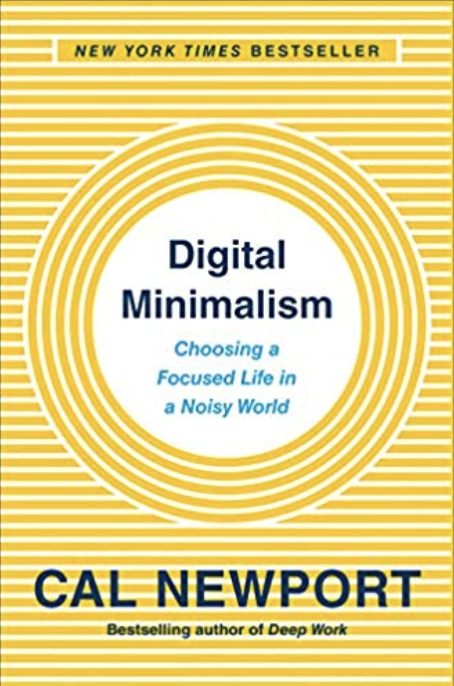
In this book, the focus is on only using the internet for things that truly align with your greatest values. Right now, my greatest value is writing and being of service with my creative work. If my internet use is focused on researching for my book or sharing something useful or otherwise improving my life in a way that aligns with my values, cool. But a lot of our collective internet use today consists of mindless browsing, scrolling, and constant consuming. On social media, our attention is literally being bought and sold by advertisers at every single second. I’m not saying this is wrong, or that I’m anti-social media now – at all. I just think it’s important to evaluate the role that social media plays in our lives, and investigate whether or not it’s making us feel the way we want to feel.
Internet Rehab
Did you know there are actually rehab centers for internet addiction? It doesn’t surprise me at all, and it sounds really wonderful to be there, actually. No phones, connecting with nature, connecting with people…it’s basically what life was like before we all started staring at screens. Check out this article for more: Inside An Internet Rehab Program
Studies are showing that the more time we spend on social media, the less happy we are, which isn’t a surprise either, of course. New Research Shows Just How Bad Social Media Can Be For Our Mental Health
On Loneliness
As you can see, I’ve been reading a lot of books. Right now, I’m reading Lost Connections by Johann Hari (great so far), and he talks about going on a hike up a gorgeous, scenic mountain…and comparing the view of nature to a screensaver.
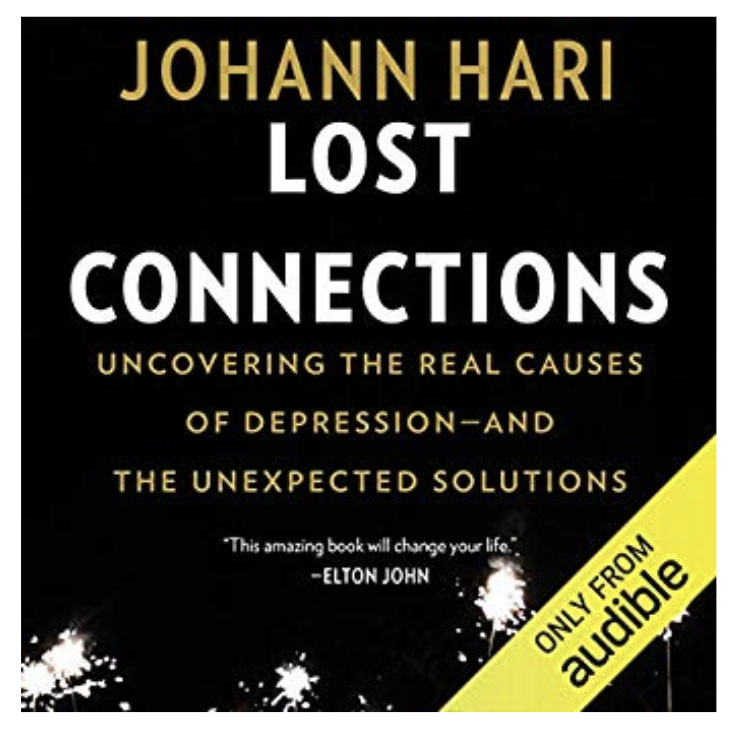
One of the main points in the book is how much a lack of meaningful connections impacts our wellbeing. Often, we’re looking for meaningful connection in social media, but it can end up making us feel more lonely.
Being on the internet and social media incessantly can also take us away from a meaningful connection to ourselves. In this article I Used To Be A Human Being, Andrew Sullivan writes:
“An endless bombardment of news and gossip and images has rendered us manic information addicts. It broke me. It might break you, too.
It was as if, having slowly and progressively removed every distraction from my life, I was suddenly faced with what I had been distracting myself from.”
So…what did I actually miss about Instagram?
After over a month without Instagram, I asked myself what I actually missed about it. The truth? The only thing I ever found myself wanting to log in to look at was Ava Ryan videos. Seriously – they always make me laugh and feel genuinely better if I’m in a bad mood, so I found myself wondering if she had posted any new funny videos. Other than that? I haven’t missed actually CONSUMING anything on Instagram. I’ve been catching up with friends in real life, and we actually have more to talk about now since I’m not already caught up on what they’re doing through their Instagram stories. If there’s anything I’ve “missed” on Instagram that’s actually important or noteworthy, they’ll fill me in over dinner instead of sending it to me as a post in a DM.
I missed posting at first, and I still do to some degree – it feels like I have a backlog of topics that I haven’t shared about. But after this past month I’ve gotten out of the habit of putting my whole life on my Instagram stories. I’ve gotten my moments back, and it feels so nice to be more present with myself.
I have gotten a few emails from people saying they are missing my posts that contain wellness tips or helpful information, and some people have asked if I would post an update on my dad’s cancer progress (he’s still doing great, if you’re wondering!)
So I found myself asking – how can I use Instagram to be of service and share helpful work, without feeling distracted and anxious? How can I share in a useful way, without taking away from the deep focus I need to write my book?
I do still have the desire to use social media mindfully and effectively – to share things with people who may be helped by them.
Later
The first solution I found was Later – a service where you can schedule your Instagram posts without actually having to login to Instagram at all. This meant I could potentially never download the Instagram app again, and just post things on Later if I had something I wanted to share. This way, there was absolutely no chance of getting distracted by scrolling, but I could still use it to post for work.
The reason I ended up having to download the actual Instagram app again was because I accidentally scheduled a post in Later as a test, and then I forgot about it – and it posted. I couldn’t figure out how to delete it without downloading Instagram and going in to delete it.
But before I re-downloaded it, I did something “drastic” — with the goal of using Instagram without letting it use me.
Unfollowing…Everyone
Before I re-downloaded the app, I asked myself, “what is it that gives you the most anxiety about downloading Instagram again?”
When I got real about that answer, I realized that the biggest reason I had anxiety about it is because my attention has become so much more focused without it.
I’ve been able to read so many books, to write and work on my book for longer periods of time, my mood has been fluctuating less, and I’ve been forming more meaningful connections with my handful of closest friends in real life. My phone is away for most of the time when I’m with people now, my phone is on airplane mode during my writing times. I’ve been working on being much more mindful of where my attention is going. I have a wooden box on my kitchen table now, that I lock my phone in when I sit down to write.
I didn’t want to go back to scrolling and feeling distracted.
On Instagram, I was following 1,000 people. This means that every time I open up the app, it’s a crapshoot – I have a chance of letting ANY of 1,000 other people take my attention in whatever way the algorithm decides to show it – rather than being in control of my attention.
That’s a LOT of power to give away.
Depending on what shows up when I open the app, my mind and emotions could be taken in a thousand different directions (literally). One post could make me feel great or terrible. That idea freaked me out, because I’m starting to value my attention as the gold that will fuel my creativity.
Don’t get me wrong – I was following a lot of amazing, wonderful, positive people…but even positive posts or an inspirational quote can take my attention away from what I’m working on, and I’ll end up clicking on something else, and down the rabbit hole I go. You know how that is – you open up Instagram, and suddenly 45 minutes later you have to work so much harder to get back in the zone of your own life.
The app is DESIGNED to keep you engaged with it for as long as possible.
“The skillful management of attention is the key to improving virtually every aspect of your experience.”
{Deep Work}
I wondered if I could use Instagram more mindfully if I didn’t have to worry about getting distracted and unfocused by other people’s posts. I thought about what it would “mean” to follow 0 people, just to keep the app completely distraction-free. It’s nothing personal against anyone, and I’ve been off of Instagram for so long now that it doesn’t even feel like “real life” anymore. I’m a whole and complete person even without any social media “presence.” So are you. So what were my fears about unfollowing everyone? Would friends be offended? Would it come off as pretentious to follow 0 people, as if I’m “expecting” people to follow me without doing the same in return? To that, I guess all I can say is I would hope that my real-life connections can be strong enough to withstand this kind of experiment, and I definitely don’t “expect” anyone to follow me unless they purely WANT to. So…
I decided that it if meant prioritizing my mental health and my deep work, while still being able to be of service through posting on Instagram, it might be worth trying.
I texted my sister and asked if I could pay her to go into my account and unfollow everyone (Instagram only lets you unfollow about 200 people per hour, so it would probably take her awhile to actually complete the mission). I worried that I’d have too much of an emotional response to do it myself. She said I didn’t have to pay her, but that she’d do it. ;) And she did (she left me following just 1 person). And when I re-downloaded the app, it did lessen my anxiety considerably to be able to open it up without playing Russian Roulette with my emotional state.
I may regret it later and re-follow everyone, who knows. Don’t hold me to anything, this is just an experiment. But if Taylor Swift and Beyoncé did it, it can’t be the worst decision in the world…right?
I Forgot About Instagram
I’ve been working on this blog post sporadically over the past few weeks – and after 6 weeks, I genuinely forgot about Instagram. Before now, I’d been thinking about it in the back of my mind, but lately multiple days have gone by where I haven’t even thought of it once. I have been feeling the urge lately to use it to share photos and content again, but I haven’t had any urge to scroll or check out what anyone else is doing.
I can see so clearly now how scrolling is a massive heap of clutter for the mind.
Instagram Is Testing Removing “Likes”
While I’ve been away, it seems that Instagram has decided to test removing the “likes” count on photos — it’s unclear at this point when they’ll roll it out or if it’s 100% certain, but I absolutely LOVE this idea. Now, if only they would remove follower counts, too. I think both likes and follower counts are much more detrimental to our mental health than we realize, and we’re just seeing the start of it.
Any move to make these platforms less stressful, to give people more freedom to be creative and expressive with less pressure and anxiety, I support wholeheartedly.
In the documentary American Meme, which is about Instagram Influencers (it made me sad to watch), Hailey Baldwin asks:
“What if you woke up tomorrow and you had no followers? Can you go back to being yourself?”
CREATE MORE. CONSUME LESS.
What do you think? Have you experienced any of the same? Again, this isn’t meant to be “anti-social media” – I love many things about social media, I see the benefits of it very clearly, and will continue to use it, experiment with it, notice what feels good and what doesn’t, and to let my relationship with it evolve. But I think most of us could take a moment to consider if the way we’re using it is taking away from what we truly value in our lives. And I think being constantly plugged in to the Instagram influencer culture may be more detrimental to our mental health than we realize.
Ok – I love you guys, and I’m cheering you all on to have healthy and fulfilling relationships with social media, and I hope you give yourself the space to be fully present with real life humans, to take walks outside on the Earth, and to do the deep work you truly want to do.
I’ll leave you with this… food for thought. If you know that social media is designed to be like a slot machine at a casino, you can at least decide not to play the slot machine 24/7.
As I make my move to “re-emerge” on Instagram, I’ll be keeping all of this in mind as I establishing a new relationship with it. To use it as a tool, rather than be a slave to it. I’ll continue to post, and will experiment with posting on stories, but in a more mindful way, in a way that allows me to continue to be present for my life’s moments.
Just like quitting sugar or alcohol for a period of time so you can truly see how it’s affecting you, this time without Instagram has been enlightening.
Happy to hear your thoughts or insights in the comments below.
To freedom…
xx
Jenny
If you want updates on my upcoming book, you can sign up to receive them here.
If you’re curious about how to write a non-fiction book proposal, I share my experience and book proposal outline here.

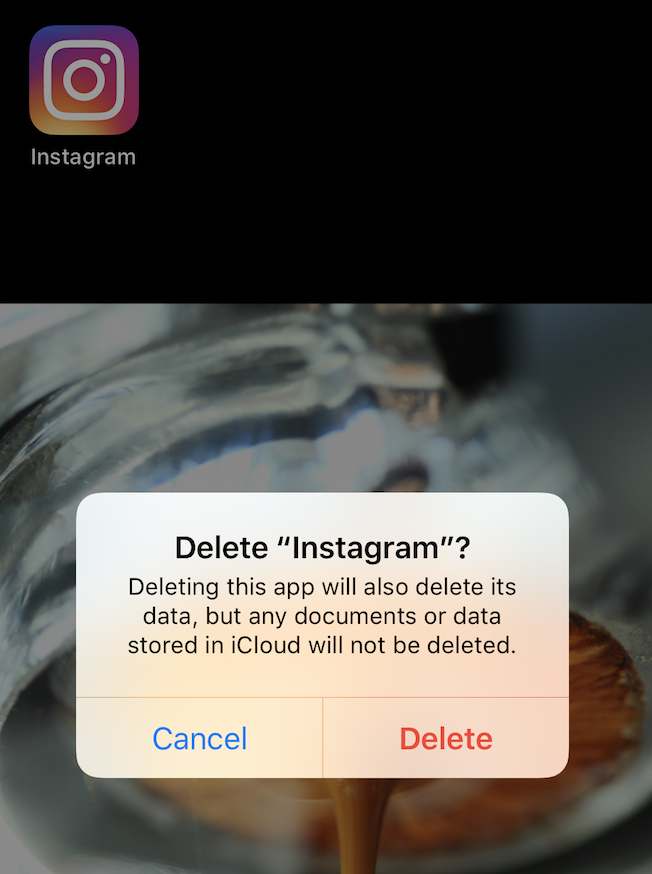
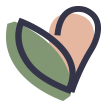
Brandy Bell says
Hello, Jenny.
Thank you for sharing your experiments here in this format. In the last year I became a health coach and overcame a life-time of depression only to create a new kind of hollowness and desperation… starting my business online. I am also a writer, and before I got my first smart device (that was 2012, I just turned 40), I was an avid reader. I had still been reading, (though less than in my 20s) until I started my new career in November and now I read things I rarely finish. Mostly listening to lectures and podcasts. But I am a poet and this does not feed my soul.
This is a wake up call to how much both Facebook and Instagram, and now even Pinterest, are in control of my emotions and day to day activities. Addiction. I try to let go of expectations with so much that I put out there and that helps a lot, but the popularity contest remains.
As health coaches, I truly believe we are in this together to make the world a better place and really help people, so I do not feel I am competing with them… I think I am just competing with myself… for deeper love, connections, inner work, my attention and focus. I can’t thank you enough.
I have loved your stories about your dad as my best friend’s mom has been diagnosed with pancreatic cancer too. She’s doing…well… still in treatment but it seems remission will come soon. Anyway, the timing of this post will save my life…. my creativity and my connection to the planet.
I really related with what you said about getting derailed by just one emotion or thing and how it can send me down a rabbit hole. It’s frankly doing that right now, but the difference is… it is a catalyst for real change that will impact my business and life long-term. This post is one I needed to see in order to survive without losing myself. In five years, the choices I make from this moment will matter.
I am in it, I am a health coach. I kept thinking that I would be quitting entrepreneurship to give up this online hustle, but I have the choice to shift this relationship and focus my attention on my content and community. I wish you continued connections and warmth. Happy writing!
Peace and love to you, Brandy
Jess Scheer says
Jenny thank you for this post. Around the time we reconnected in the late spring last year, I was feeling stressed and low and didn’t have the space for any extra stimulus besides focusing on wrapping up my chapter in NY and preparing to move to the beach. Like you wrote, i thought I’d be off Instagram for a week, to gain my sense of calm back. I ended up being off completely for 3 months. Deleted IG, FB, dating apps. Moved my emails to a different part of my phone. Anything that made me reach for my phone. By the time I moved out to Fire Island, it was SO nice to be in the quiet, the nature, and the me time, that I just kept it going. Friends and family came to visit and I left my phone at home. Or if I went to watch the sunset and took a pic, it was just for me or sending a text to someone letting them know I was thinking of them. I missed watching my sisters stories because of my niece, so made sure to FaceTime everyday. Pretty much didn’t miss anyone else and actually loved not being in the loop. When I did catch up with friends, some almost assumed I knew what was going on in their lives from stories (which I found very interesting!) As you shared, the people I wanted to be in touch with, I made the effort and it was really nice.
I traveled to Mexico and Montreal and didn’t post a single thing. It was awesome.
When I did come back on IG, I deleted anyone I wasn’t friends with (celebrity / influencer type ppl) and anyone I wasn’t actually close with or ever felt a type of comparison with when I saw their posts.
Since then, I’ve chosen to follow more accounts on topics I care are for education and information.
I’ve been posting in my travels because it feels good, but even last month, I went off again for 3 weeks because I got sick and wanted to focus on the quiet and being with myself. It’s a dance.
I look forward to checking out the resources you share – thank you for so thoughtfully putting this together :)
One thing I am taking away from this reflection is about focus and mastery to create a true art form. I have a new project brewing inside and this awareness feels key.
Sending lots of love to you friend!
Xox
Jess
Mindy says
I LOVE this Jenny!! As someone new to blogging I have felt pressure to play the social media game
myself. And while there are some positive things about it, when it comes down to it, it just makes me feel icky. I feel like our brains just are not designed to be exposed to the amount of informtation we are bombarded with daily, and commend you for not only breaking out of the cycle but inspiring others to do so. My tech addition is something I have to be mindful of daily, but when I am I feel way more peaceful & connected to myself. Will definitely be checking out the books you recommended as well as the Reddit forum. Thanks for another amazing post!